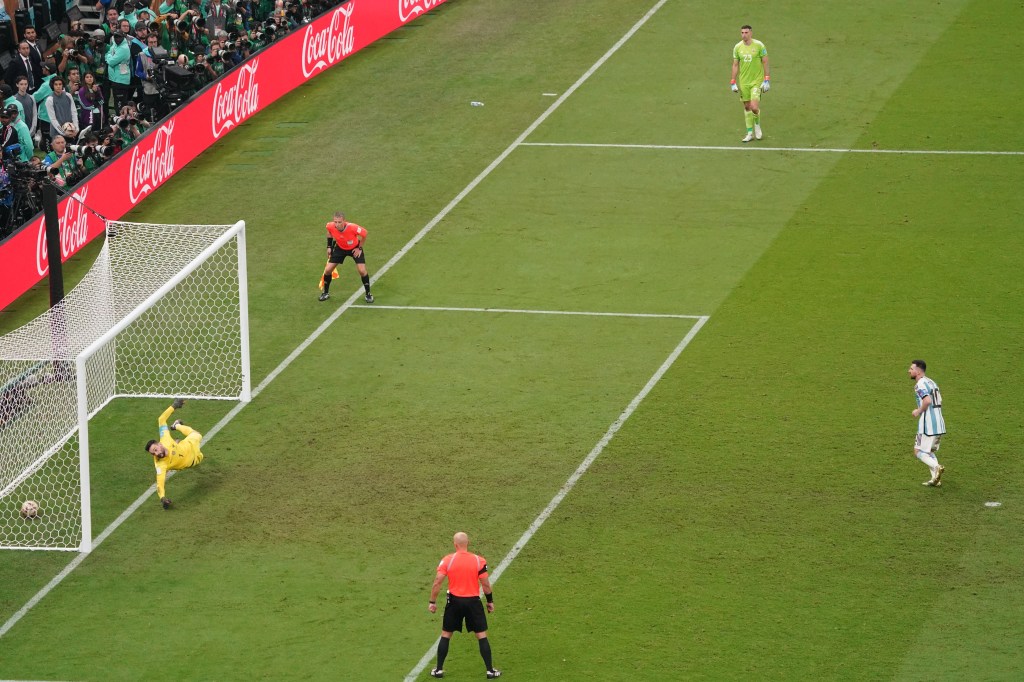Three stipulations:
1) Soccer is, by a wide margin, the world’s most popular sport.
2) The World Cup is the greatest multi-national sporting event of all, even surpassing the Olympics. (Among other things, the International Olympic Committee makes the Fédération Internationale de Football Association look like the Knights of Columbus by comparison.)
3) The just-completed World Cup finale was a terrific game, a nailbiter in which the two best players on the field scored five of the six goals during regulation play.
All of that said, there are still tens of millions of Americans who do not understand the appeal of “The Beautiful Game.” These words are being written on their behalf; call them America’s Soccer Skeptics. (The fact that the acronym that follows from that name rather nicely tees up rebuttals to what will be proposed here should serve as evidence of the good faith in which it is offered.)
Because this is written on behalf of Americans, American terms will be used throughout, e.g., “soccer” rather than “football,” “field” rather than “pitch,” “game” rather than “match,” and “boredom” rather than “ennui.”
The question before the house is this: How could it be that this magnificent tournament showcasing these magnificent athletes was decided on something as contrived as penalty kicks? Isn’t that like a Super Bowl game being decided by a punt, pass, and kick competition? Or a World Series by a Home Run Derby? Why not let the game play out in sudden-death overtime?
While it is true that just three of the 22 World Cup championship games played to date were decided by penalty kicks, that is three too many—and all occurred in just the last eight World Cup finals contested, suggesting the possibility of a disturbing trend.
It is argued that the players have already been running for 90 minutes plus some random amount of time the referee tacked on as the mood struck him at the moment. If that’s the concern, then give the players another halftime period to rest. Make it longer than a regular halftime period if need be. And change the substitution rules to accommodate the increased load on the players.
But here’s the thing. The real reason for the shootout is something that is not supposed to be spoken aloud: Goals are too few and far between, so overtimes could drag on forever. Sure, Argentina and France scored six goals between them —but wouldn’t that have been even more reason to let the boys play on?
Granted, you couldn’t have every game in the tournament go into potentially limitless overtime, otherwise the 2022 World Cup might have delayed Game 1 of the 2026 tournament. But why not for the championship game?
Three of the four major North American team sports have made rule changes to address similar concerns. (No, Major League Soccer is not included; remember on whose behalf this is being written.) Only the National Basketball Association hasn’t done so since, on average, several points are scored each minute during a basketball game, so a five-minute OT period or two generally settles things.
The closest analog is the National Hockey League. Through the 2003-2004 season, regular season hockey games could end in a tie. Today, there’s a five-minute overtime period, after which, if the tie has not been broken, there is, yes, a shootout. But when the stakes are highest, i.e., during the Stanley Cup Playoffs, all games continue until a goal is scored. And there is nothing more excruciatingly suspenseful than a Stanley Cup overtime game.
The National Football League went to regular-season overtime in 1974 to break ties. The length of the OT period was originally 15 minutes. Now it’s ten. If the game is still tied, then it goes in the books as a tie. But once the playoffs come—that is, when the stakes are highest—games are played out under sudden death rules.
Even as tradition-bound a game as Major League Baseball has made moves to minimize instances of extra-inning games going on for too long. Now during regular season games, each team begins each extra-inning with a “ghost runner”—a runner on second base—to begin its at bat, thereby increasing the chances that a game-winning run will be scored. Come the playoffs and World Series, though, and the ghosts vanish. If a tie takes 18 innings to break, so be it.
In each of these cases, an artificial element was added to regular season games, taking into account concerns about player safety and the logistical snarls resulting from tie games going on for too long. But when the stakes are the highest, the artificial elements disappear so that the games could be decided in the time-honored way.
It is respectfully proposed here that FIFA add the following to the rules governing World Cup play: “The championship game of the World Cup shall continue, including rest periods as appropriate, until the winning goal is scored during the normal flow of play.” That’s “during the normal flow of play,” not something as inherently artificial as a penalty kick shootout.
America’s Soccer Skeptics expect a lot of push-back to this proposal, and all rebuttals and counterproposals are welcome. We just ask that you play as fair as they did when we teed up that acronym so nicely for you.








Please note that we at The Dispatch hold ourselves, our work, and our commenters to a higher standard than other places on the internet. We welcome comments that foster genuine debate or discussion—including comments critical of us or our work—but responses that include ad hominem attacks on fellow Dispatch members or are intended to stoke fear and anger may be moderated.